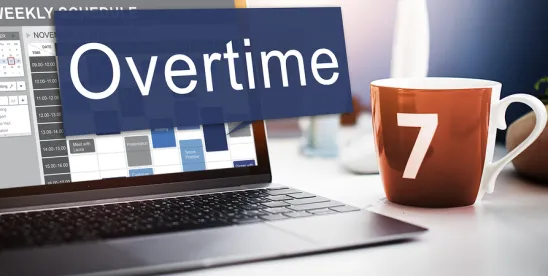The U.S. Department of Labor’s (DOL) new rule to raise the minimum salary thresholds for the Fair Labor Standards Act’s (FLSA) white-collar overtime exemptions could be delayed as it faces multiple legal challenges, alleging the department lacked the authority to set a salary test.
Quick Hits
- A federal court in the Eastern District of Texas heard arguments on the state of Texas’s bid for a preliminary injunction to block the enforcement of the DOL’s new overtime rule.
- The lawsuit is one of three federal court challenges to the DOL’s new rule.
- The rule will substantially increase the minimum salary required for employees to be considered overtime-exempt under the FLSA’s white-collar exemptions.
On June 24, 2024, a U.S. District Court for the Eastern District of Texas held arguments on the state of Texas’s motion for a preliminary injunction seeking to block enforcement of the DOL’s April 2024 final rule, part of which is set to go into effect on July 1, 2024.
The lawsuit by the state of Texas, filed on June 3, 2024, alleges the 2024 DOL rule violates the Administrative Procedure Act (APA) and the U.S. Constitution in that the FLSA only authorizes the DOL to define the job duties for the FLSA’s exemption for executive, administrative, or professional (EAP) employees. The state filed a motion for an immediate preliminary injunction or stay under the APA to keep the DOL’s previous salary thresholds and block the DOL from enforcing the new rule.
The Texas lawsuit is one of three federal court challenges to the DOL final rule. Another was filed in the Northern District of Texas by software company Flint Avenue LLC, which is also seeking a preliminary injunction. Briefing on that motion is set to conclude on June 26, 2024. More than a dozen business groups led by the Plano Chamber of Commerce filed a third challenge, which was also filed in the Eastern District of Texas.
2024 DOL Rule
The 2024 DOL rule raises the minimum weekly salary for the EAP exemption from $684 per week to $844 per week, or the equivalent salary of $43,888 per year, on July 1, 2024. The threshold will increase again to $1,128 per week, the equivalent of a $58,656 annual salary on January 1, 2025, aligning the threshold to the 35th percentile of salary in the lowest-wage census region (the South).
The rule will also raise the annual compensation for the highly-compensated employee (HCE) exemption to $132,964 per year on July 1, 2024, and then $151,164, equivalent to the 86th percentile of full-time salaried workers nationally, by January 1, 2025.
Moreover, the rule calls for those thresholds to automatically increase every three years based on up-to-date wage data.
Preliminary Injunction
In seeking a preliminary injunction, Texas argues the plain language of the FLSA does not authorize the DOL to set a minimum salary test for the EAP exemption, or that at the very least, the DOL’s new thresholds are unlawful because they essentially create a salary basis test that turns entirely on employees’ salary, regardless of their job duties.
The state argues that the rule will increase costs for employers like the state, pointing out that the DOL has admitted the July 1, 2024, increase the EAP threshold is likely to impact approximately 1 million employees who earn more than $684 per week but less than $844 per week and the January 1, 2025, increase will impact 3 million workers who earn at least $844 per week but less than $1,128 per week.
The state further pointed to increased compliance costs if the rule goes into effect on July 1, arguing that the preliminary injunction issue under the APA turns on the irreparability of the harm, not the magnitude.
However, the government argues that Texas has not shown specific evidence of the financial costs or harm it will face due to the July 1 increases to justify delaying the effect date of the 2024 DOL rule. The DOL further argued that the court, if anything, should only enjoin enforcement as to Texas, the party in the case, and refrain from a nationwide injunction.
During the preliminary injunction hearing, the judge questioned the government on whether the salary threshold essentially imposes a salary test since many employees who would otherwise be considered exempt based on their duties will no longer be exempt simply because their compensation does not exceed the threshold. The judge pointed to caselaw that suggests a strict salary-basis test would not follow the FLSA.
The hearing also focused on the scope of a potential injunction, with the government arguing that, if anything, the only relief necessary would be to craft an order blocking enforcement of the rule against the Texas government. Texas argued that the nature of preliminary injunctions under the APA is that they block the underlying administrative action itself, suggesting that the rule should be blocked universally.





 />i
/>i

